Today will be a landing day for me, gentle I hope, on the heels of an utterly rich, terrifically full, wonderfully exhausting trip to the Washington, DC area and my old stomping grounds, followed by a day in Charlottesville, Virginia, for a bit more research on the work in progress, and a long drive home.
The best part: family. What chaos and what comfort. You know, I’m sure. Almost a full complement for grandgirl Delaney’s high school graduation, pulled together from near and far, with various hangers-on we also love, a big dog (hahaha), good food, a stuffed car load of us careening to graduation almost before the sun comes up, swinging by the Dunkin’ for hot coffees and donuts — calling out our orders at the drive-thru from our charades riffs from the night before (“One diary of a large hot coffee!”), doing The Wave when Our Graduate walked across the stage (and a stranger-friend ringing her cowbell for us; that meant we Waved for her child as well, of course); and then there were the crossed wires and the forgiveness, the tears and the hilarity, the reminiscences, new memories made, and the surprises: a grandgirl even came from Spain.
It was a lot. It was epic. And I haven’t even gotten to Charlottesville yet. Jim and I drove to Charlottesville from DC early on Saturday morning and spent a long day there, with tickets to Monticello and the surrounding gardens, the highlights tour, the slavery to freedom tour, poking our heads into all the spaces we could photograph and catalogue with a good tour guide, manifesting Jefferson everywhere we could. I’ve put some photos in a Google photo album (Monticello for Storybelly), and here are a few of them that I’m using to tell my story:
At Monticello itself, I wanted to understand the geography there and walk it myself. I wanted to take shots of the Great Clock in the Entrance Hall — it plays a part in my story — and to see its workings, both in the Great Hall and in the basement, where “Saturday” lives (Jefferson’s calculations for the 7-day clock were off by enough (actually, weren’t off at all, but the room’s ceiling wasn’t high enough) that holes were cut in the floor and “Saturday,” with its weights and pulleys, ends up in the basement).
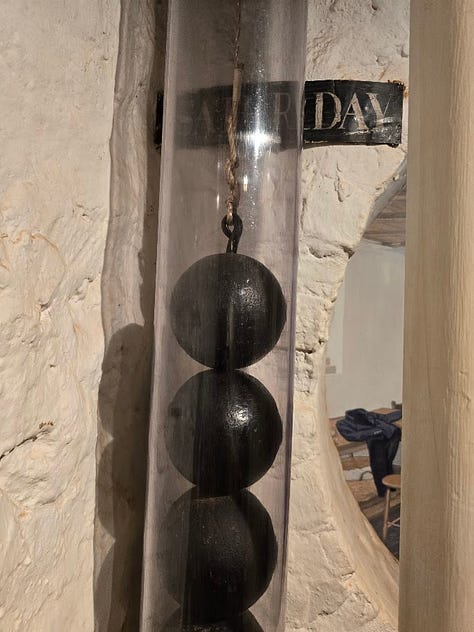
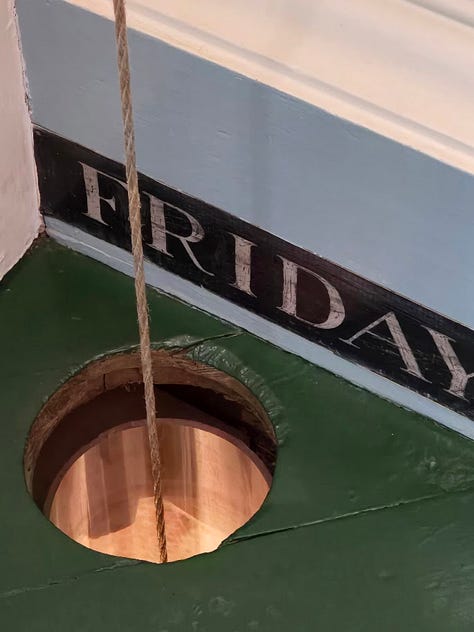
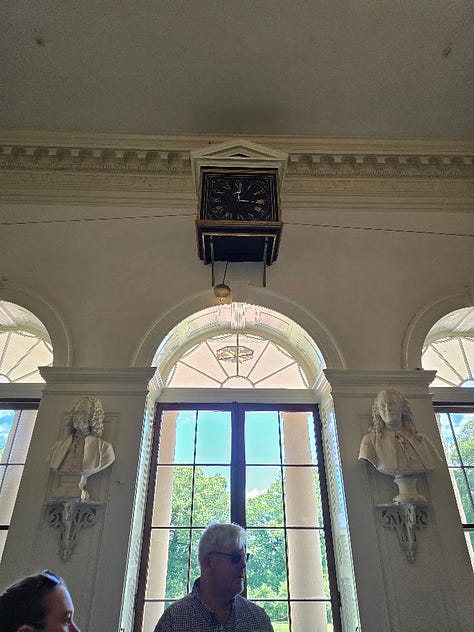
I also wanted to see where Jefferson might encounter Dan (more on Dan another day), or where Dan encounters Jefferson, more accurately. It would be in Jefferson’s study, I had thought, so I took photos of that as well, and for good measure, the bedroom (where I asked our guide about the room recently uncovered that’s believed to have been a quarters for Sally Heming, and our guide didn’t miss a beat in telling us where to find it).
My bonus was in finding a windowed alcove next to the dining room that gave me a little epiphany for my story, a small change in venue. Now I see Jefferson meeting Dan again, seven years after their first encounter, and saying the same thing he said to him when Dan was twelve: “Tea?” It’s perfect.
We also spent some time with Sally Hemings’ story. I kept thinking of the Monticello chapter in Clint Smith’s book How the Word is Passed. My experience on Saturday was that every tour mentions “the enslaved,” and that Sally Hemings and other slaves were talked about everywhere, including in exhibits… something I never saw or heard about in long-ago trips to Monticello.
I’m struggling with how to present Jefferson in this book about the Unite the Right rally in Charlottesville, Virginia in 2017, but I’m also feeling good about my narrative’s current direction, after years of trying to figure out what this story is trying to tell me, and how it wants to be written. A book always lets me know, and this one has been a long time coming.
[So here is a gentle trigger warning for those who need it (I know I did, for such a long time) about the car attack on Saturday during the Unite the Right rally. The photos below are taken by me, in the alley that is also 4th street, and there is a bit about how I’m writing my story:]
Jim and I took a break and had some lunch at Citizen Burger downtown. Then, fortified, we visited a culminating scene that I don’t think I’m going to include in my Charlottesville novel, although my characters are going to go right up to it. I might change my mind — or my story might — as I had this scene in an earlier draft of the book, but it wasn’t working, and it hurt my heart to keep writing it, so I’m recasting my ending, although the horror of it needs to be coming as the book ends, and the reader needs to know that… or that’s my thinking as I write today.
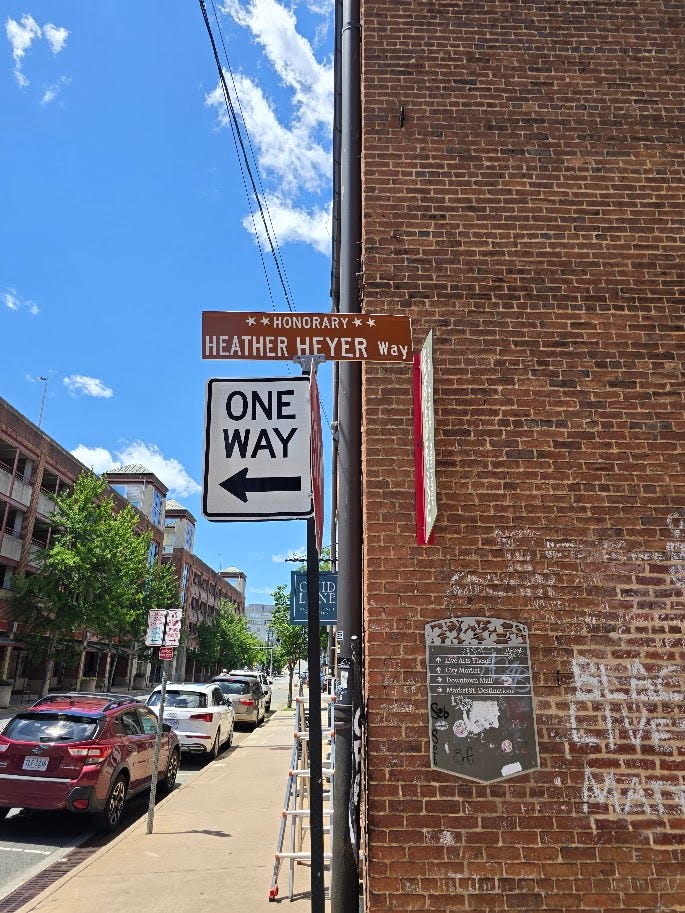

I don’t want to say too much about this scene, but I want to make it real (to myself) that I’m aware of the ending on Heather Heyer Way, and I’m writing toward the end. Maybe I’m not making sense. That’s just because so much is in flux right now, on the heels of a whirlwind visit that opened up my thinking (and feeling) so visually.
On my last visit to Charlottesville, I concentrated on The Lawn and the Rotunda, at the University of Virginia, both of them places for Friday night’s torch rally during the Unite the Right rally. I visited the former site of the Lee statue (NYT unlocked) and some of the churches. I was getting a feel for the geography of my story, walking through Charlottesville. I also visited Nameless Field, where the Unite the Right protestors gathered before their march on Friday night.
For my next visit I will have interviews scheduled, so I want to make the most of my writing time this summer, in order to get a draft. It is still fascinating to me that, no matter how many times I do it, a book takes its time, and tells you when its ready, and then you’d better be ready to go go go right along with it, on its timeline. It’s as if a story knows, somehow, when you’ve got enough — enough research, enough love for your subject, enough commitment, enough strength — to write with and write well, and now it’s time to settle fully into the work.
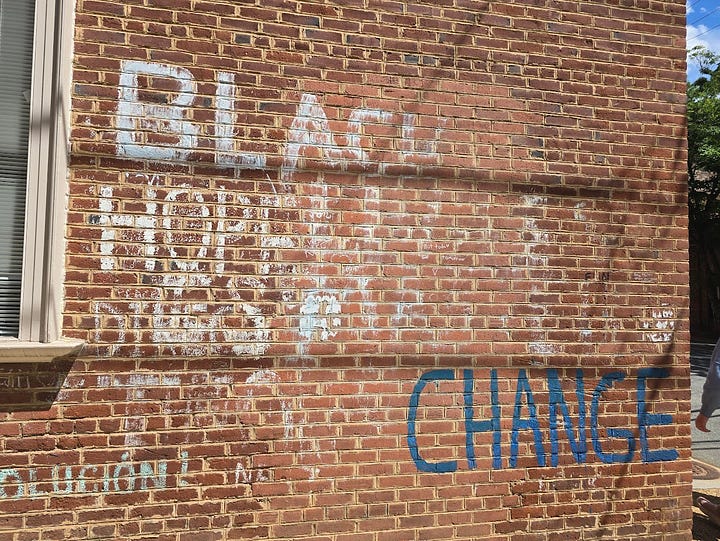
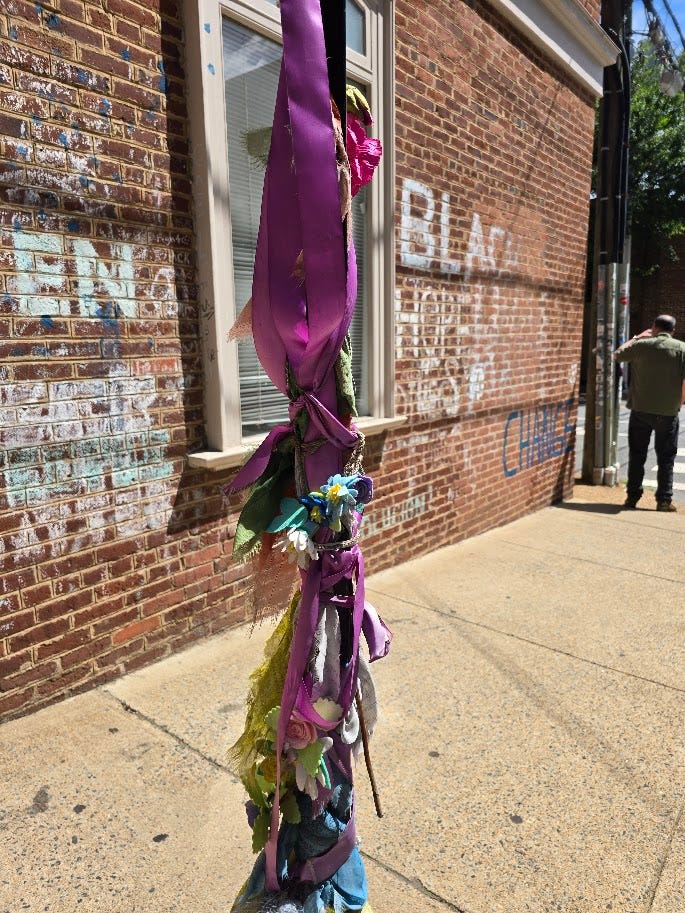
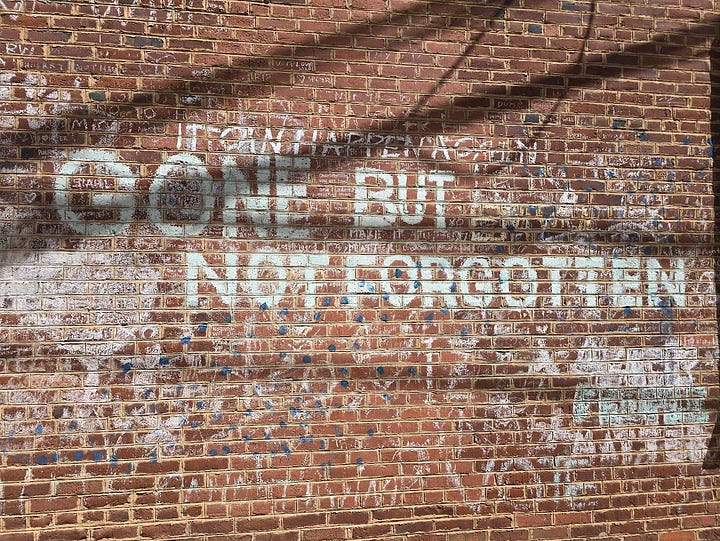
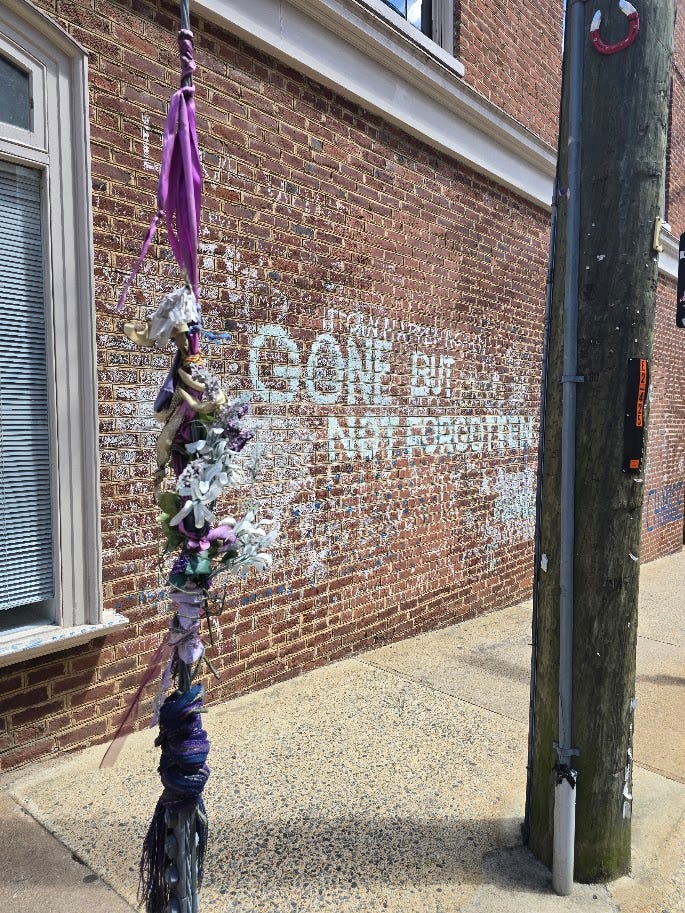
I think a story also knows when you are mentally ready, emotionally outfitted, and have grown into the writer you need to be in order to write that story. I have had that experience more than once with a book… Countdown, for instance… it started out as a picture book fifteen years before it was published as a novel and part of the Sixties Trilogy.
You get to this point with a book, and the story is suddenly trusting you and your commitment to do right by it. I feel that as a charge now, and I’m trying to answer it.
I was thinking about our Lab posts this May, about sentimentality vs practicality and I realize I’ve been writing them for me as much as for y’all. I don’t want to get maudlin with this story. I don’t want to over-sentimentalize it or sensationalize any of this story, which is a tall order with a story of this kind.
I felt the same way about Kent State, though, and somehow — with those same parameters in place from the story itself — seemed to manage to find a structure that worked for that novel. I trust we’re on the right path with Charlottesville now, too.
In history this week (if you haven’t had enough already!) I’ll just mention Walt Whitman’s birthday, May 31, 1819. His poetry in Leaves of Grass appears in my third Aurora County novel, The Aurora County All-Stars. Our hero, House Jackson, has been reading to “Mr. Norwood Rhinehart Beauregard Boyd, age eighty-eight, philosopher, philanthropist, and maker of mystery,” who has recently died and left House his copy of Leaves of Grass. There is a mystery (“…moves the symphony true) that House comes to understand by the end of the book, along with a baseball game and a pageant of some kind that defies description. :> I loved writing this book, as I have long loved Whitman. And baseball. And Ruby Lavender returns! She is ready to play ball, when the number one rule is: No Girls.
In the Writers Lab this week, we’ll explore… something. ha. I’m not fully back at my desk yet. It will not quite be June, but I’m moving into June already, so we’ll explore some summer stuff. School’s out for most of us by then, and maybe we can stretch our writing fingers and get down to our own stories for a change.
One thing I learn over and again: Writing is slow magic. In the Lab, we honor the false starts, the pauses, the breakthroughs, and the beautiful confusion. Come write with us. Each week in the Writers Lab, I send a richly drawn Exercise and a nudge toward the story only you can write.
Sometimes what we need is not a deadline, but a circle. The Writers Lab is a place to be among story-minded people, writing alongside one another, gently moving forward. Something like that. I’ll be in Chat later this week, and with a Lab and Writing Exercise post as well.
It’s good to be home for a spell (well, for two weeks, but who’s counting?).
As I say every week, I hope you connect to your own home and place in history when you read and share these books. You can find out more about them at my website, here.
Thank you for the suggestions of books with ghosts in them. I’m also looking for time folding — got any suggestions for that? So far I’ve read Long Way Down by Jason Reynolds this past week — thanks for that suggestion — and it was just what I was looking for. I’m making my way down the list.
As for YOUR writing, maybe let’s think about historical fiction for a moment… I know we concentrate on personal narrative writing here, which can include poetry and memoir and even historical fiction… what historical period would you find yourself in, in a short memoir piece or poem? How would you describe it? What it looks like, sounds like, feels like, etc., in details that would place you in that time or event without telling us too much about the year or the event? Show don’t tell. Etc.
Write me a sketch and put it in comments. I thought just now about how I could do this with Woodstock. That’s something I might attempt…. even though I wasn’t there. :>
And that’s a wrap for Digest #15. Have a great week, everybody. How is it almost JUNE?
xoxox Debbie

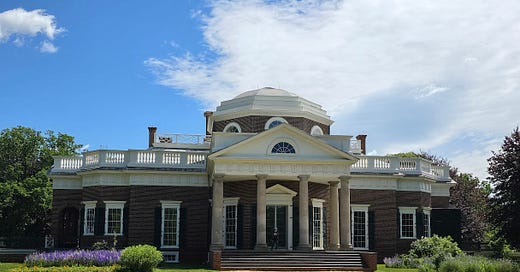





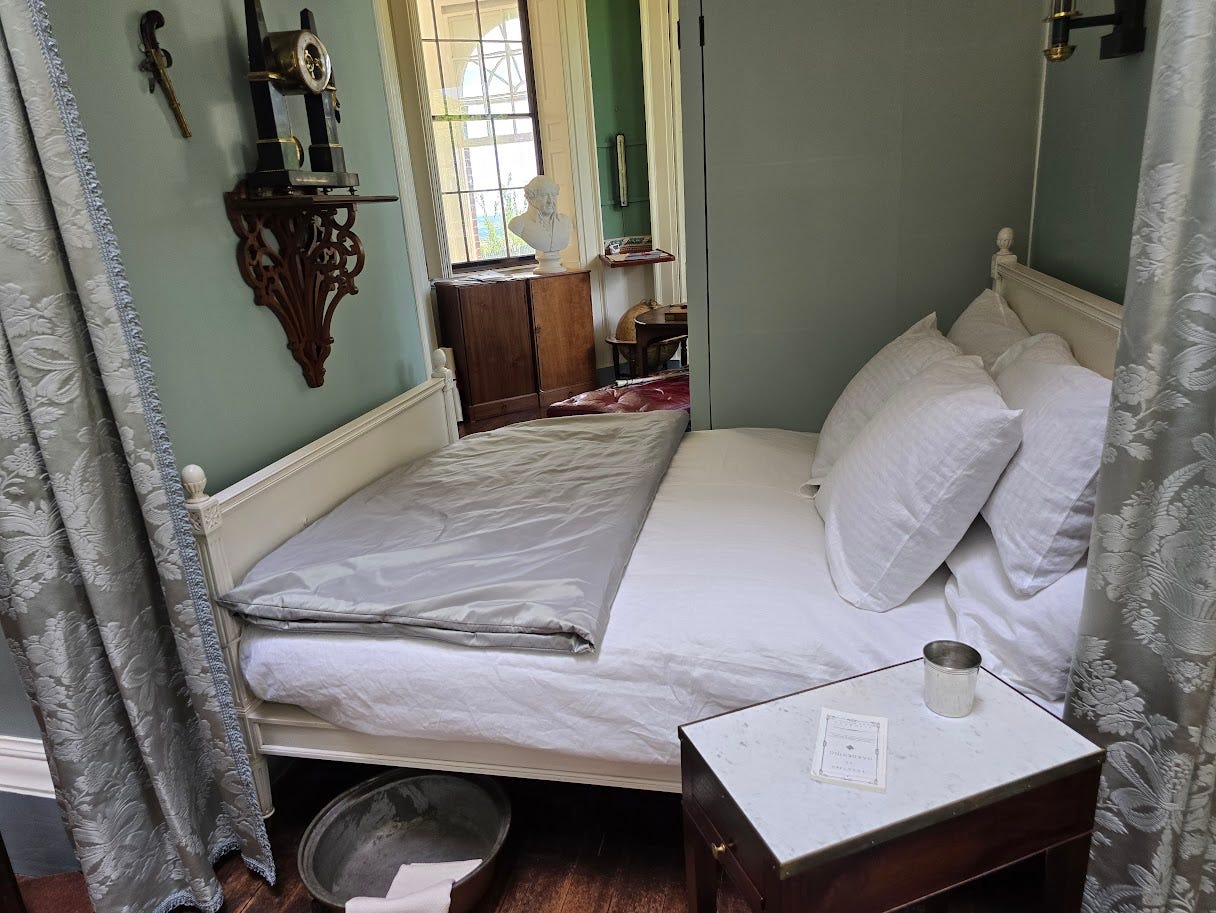
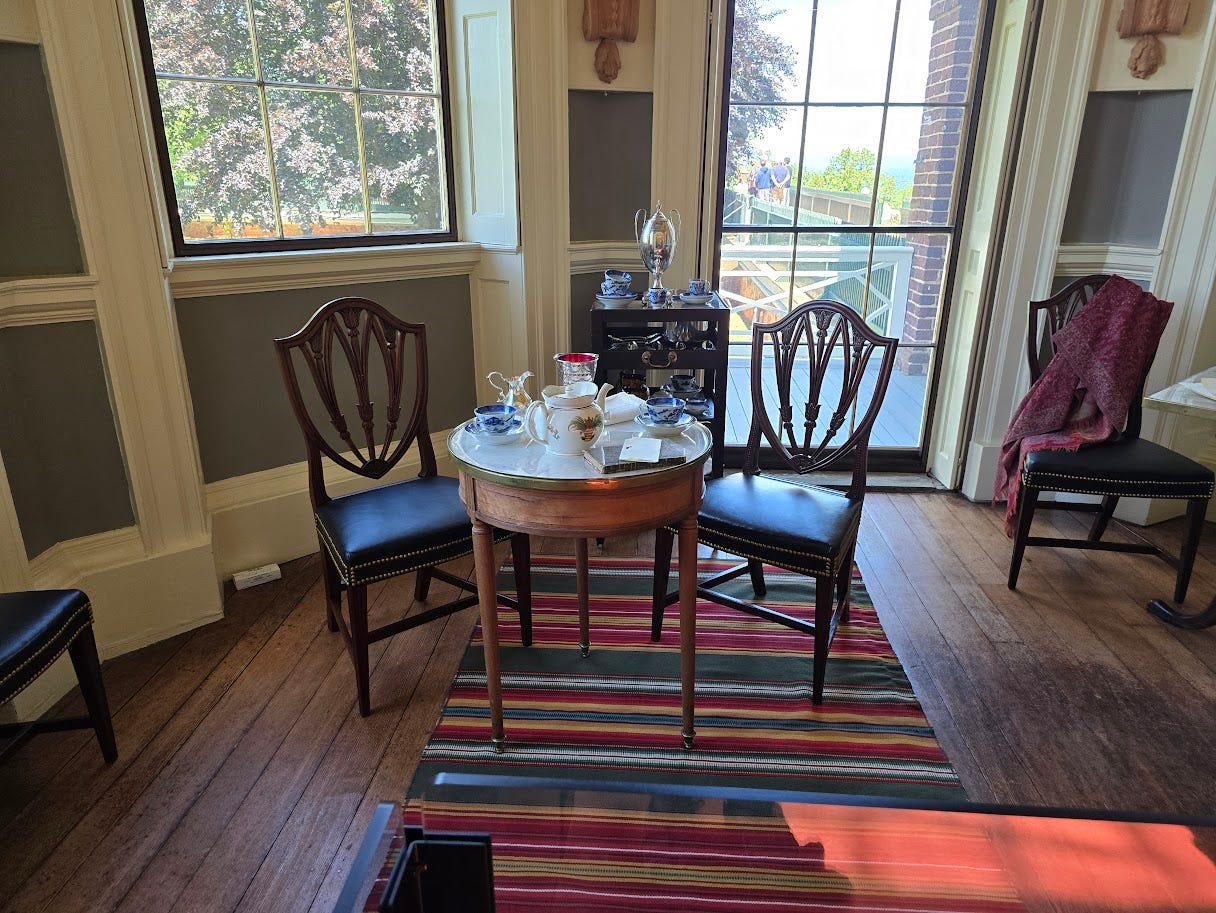
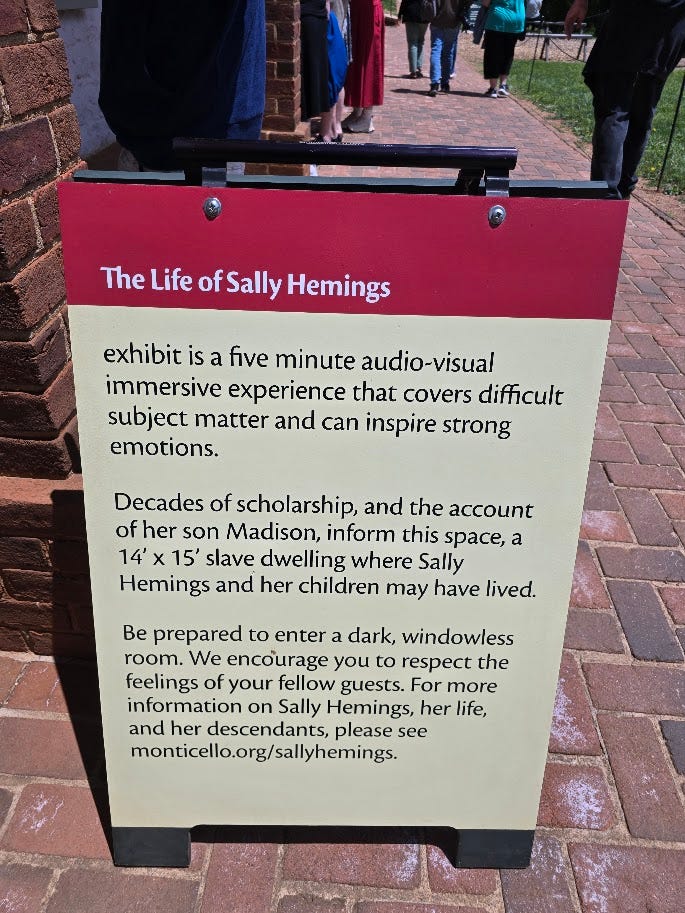




Please keep write write writing! I love reading your words and am moving toward trying to begin a routine of writing consistently myself. Thank you for being here and show in how it’s done.
Debbie, sorry to use this platform to contact you, but I found a February email from you in my iCloud account (which I never use) and replied belatedly. Unfortunately, we still seem to be having difficulty connecting. Daryl